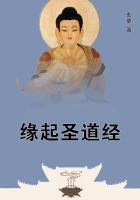THE FALL OF ROME
THE text-books of ancient History give the date 476 as the year in which Rome fell, because in that year the last emperor was driven off his throne. But Rome, which was not built in a day, took a long time falling. The process was so slow and so gradual that most Romans did not realise how their old world was coming to an end. They complained about the unrest of the times--they grumbled about the high prices of food and about the low wages of the workmen--they cursed the profiteers who had a monopoly of the grain and the wool and the gold coin. Occasionally they rebelled against an unusually rapacious governor. But the majority of the people during the first four centuries of our era ate and drank (whatever their purse allowed them to buy) and hated or loved (according to their nature) and went to the theatre (whenever there was a free show of fighting gladiators) or starved in the slums of the big cities, utterly ignorant of the fact that their empire had outlived its usefulness and was doomed to perish.
How could they realise the threatened danger? Rome made a fine showing of outward glory. Well-paved roads connected the different provinces, the imperial police were active and showed little tenderness for highwaymen. The frontier was closely guarded against the savage tribes who seemed to be occupying the waste lands of northern Europe. The whole world was paying tribute to the mighty city of Rome, and a score of able men were working day and night to undo the mistakes of the past and bring about a return to the happier conditions of the early Republic.
But the underlying causes of the decay of the State, of which I have told you in a former chapter, had not been removed and reform therefore was impossible.
Rome was, first and last and all the time, a city-state as Athens and Corinth had been city-states in ancient Hellas. It had been able to dominate the Italian peninsula. But Rome as the ruler of the entire civilised world was a political impossibility and could not endure. Her young men were killed in her endless wars. Her farmers were ruined by long military service and by taxation. They either became professional beggars or hired themselves out to rich landowners who gave them board and lodging in exchange for their services and made them "serfs," those unfortunate human beings who are neither slaves nor freemen, but who have become part of the soil upon which they work, like so many cows, and the trees.
The Empire, the State, had become everything. The common citizen had dwindled down to less than nothing. As for the slaves, they had heard the words that were spoken by Paul.
They had accepted the message of the humble carpenter of Nazareth. They did not rebel against their masters. On the contrary, they had been taught to be meek and they obeyed their superiors. But they had lost all interest in the affairs of this world which had proved such a miserable place of abode.
They were willing to fight the good fight that they might enter into the Kingdom of Heaven. But they were not willing to engage in warfare for the benefit of an ambitious emperor who aspired to glory by way of a foreign campaign in the land of the Parthians or the Numidians or the Scots.
And so conditions grew worse as the centuries went by.
The first Emperors had continued the tradition of "leadership" which had given the old tribal chieftains such a hold upon their subjects. But the Emperors of the second and third centuries were Barrack-Emperors, professional soldiers, who existed by the grace of their body-guards, the so-called Prae- torians. They succeeded each other with terrifying rapidity, murdering their way into the palace and being murdered out of it as soon as their successors had become rich enough to bribe the guards into a new rebellion.
Meanwhile the barbarians were hammering at the gates of the northern frontier. As there were no longer any native Roman armies to stop their progress, foreign mercenaries had to be hired to fight the invader. As the foreign soldier happened to be of the same blood as his supposed enemy, he was apt to be quite lenient when he engaged in battle. Finally, by way of experiment, a few tribes were allowed to settle within the confines of the Empire. Others followed. Soon these tribes complained bitterly of the greedy Roman tax- gatherers, who took away their last penny. When they got no redress they marched to Rome and loudly demanded that they be heard.















